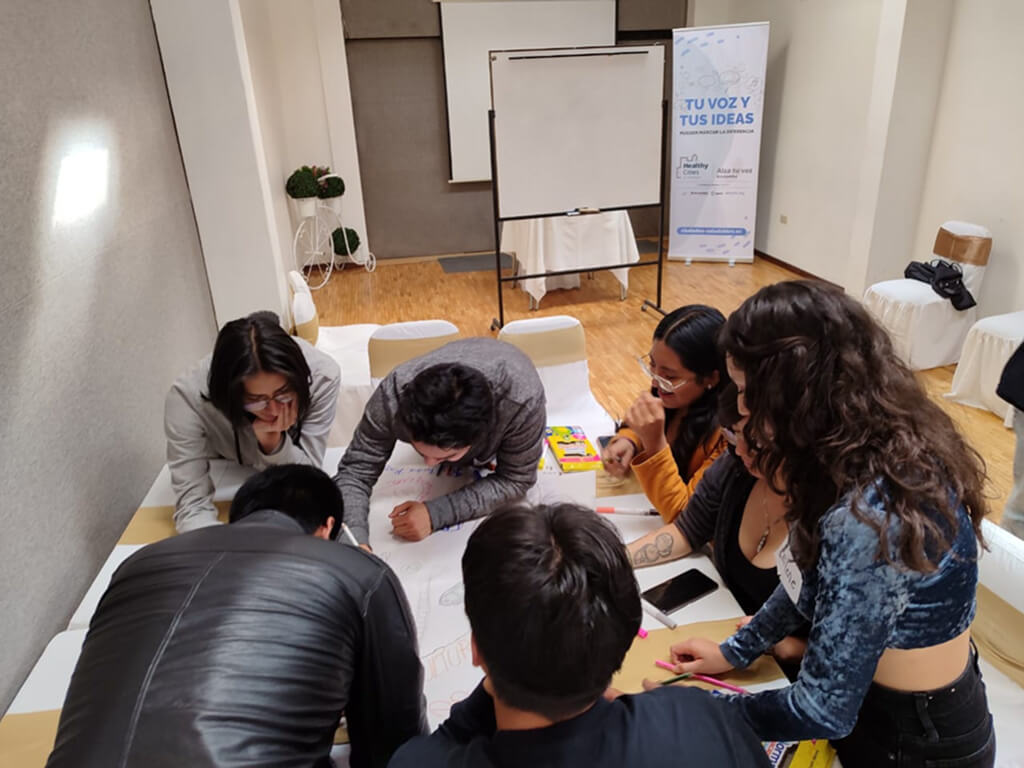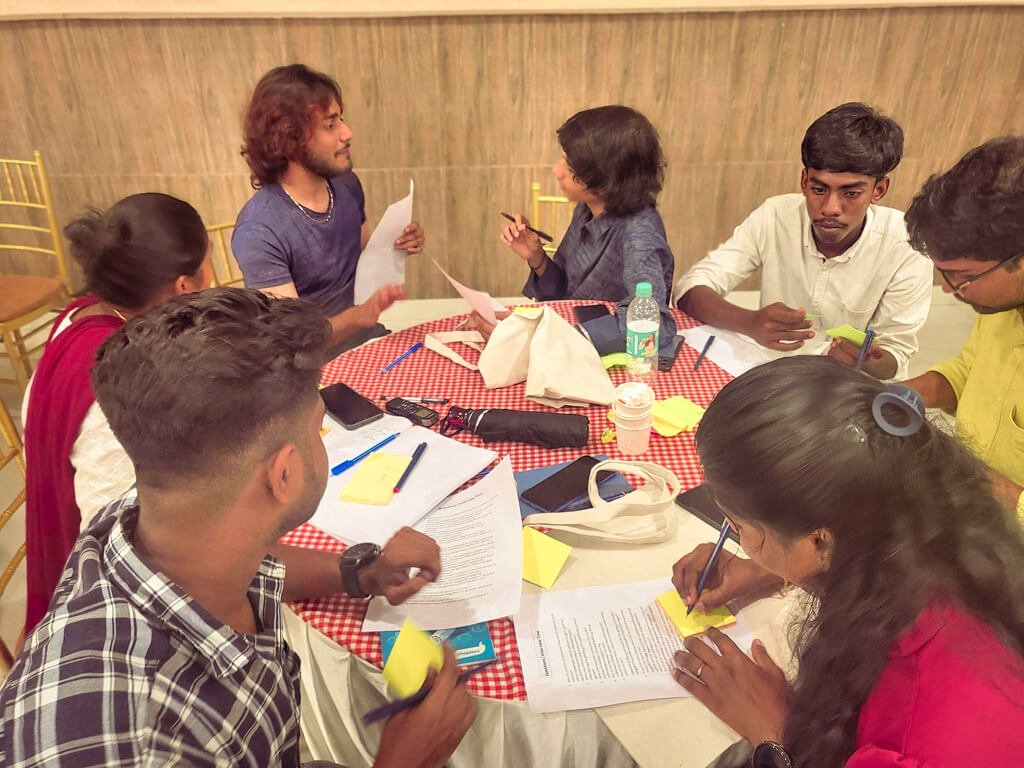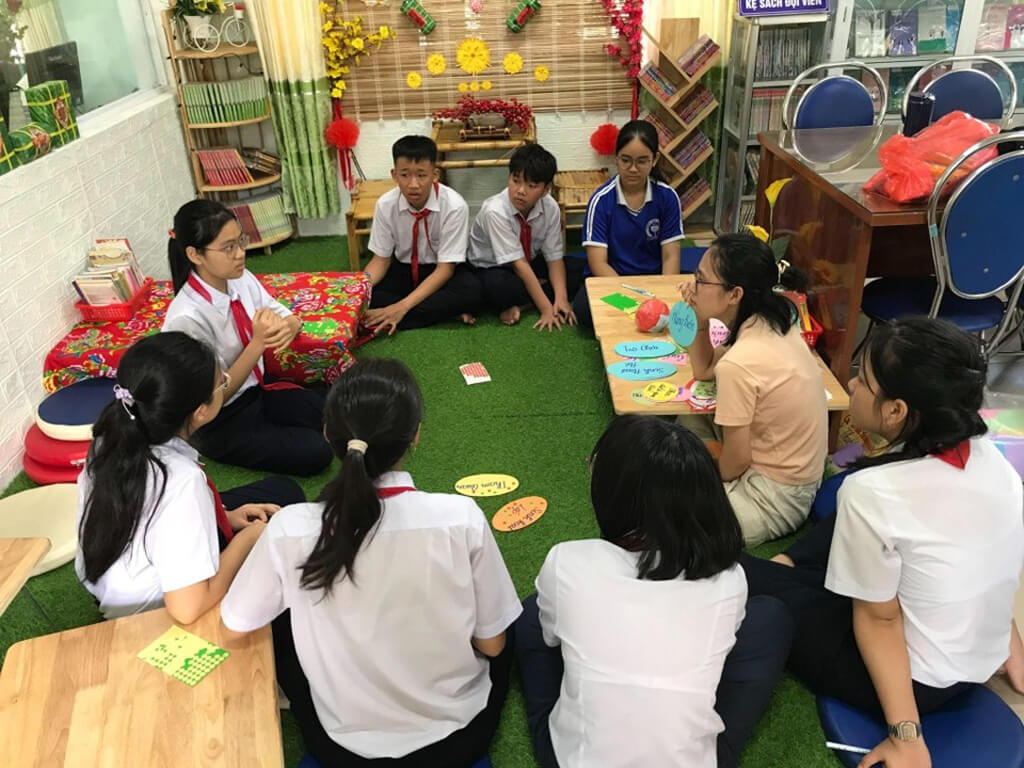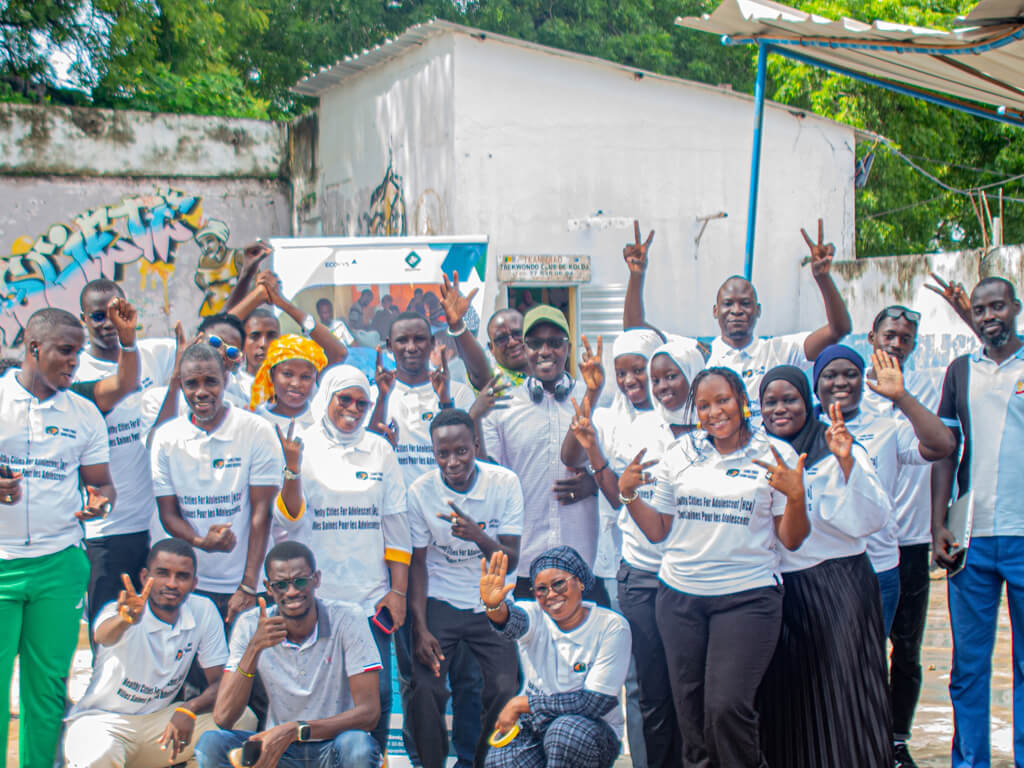NACD Grants
Ecuador
In July 2023, Lab XXI, an Ecuadorian social innovation lab, was selected to lead the first NACD ‘pilot’ in the cities of Riobamba and Quevedo. These cities were identified to represent unique needs and opportunities in an HCA-II scoping study led by Ecuadorian research consultancy, Grupo Faro.
Lab XXI partnered with DATALAT (an Ecuadorian data advocacy foundation), the Ministry of Education, local municipalities, and civil society actors, to convene adolescents and other key stakeholders in each city. The six-month research and co-development process involved range of participatory and creative methods including rap and mural paintings to surface adolescent needs, local assets, and entry points for change. Data captured through this process is also now fully accessible here.

The NACD phase resulted in a proposal for the Alza tu Voz project, which was awarded a 36 month implementation grant in December 2023. The most engaged young people in the NACD process in each city have become established as ‘nucleus groups’, key partners in the consortium to steer the project activities in their cities.
India
In January 2024, Purpose India, a social impact and advocacy agency, was selected to lead the NACD process in Thrissur, Kerala. Thrissur was prioritised based on its unique mix of opportunities to work with adolescents, environmental factors, and strong local government institutions, as identified in an HCA-II scoping study led by Indian business innovations catalyst, Ennovent.
Over eight months, Purpose leveraged its existing partnership with the Keralan youth-led organisation, Bring Back Green, and other civil society organisations, and developed new collaborations with key state actors to engage youth and local stakeholders around their priorities and perspectives to enhance adolescent health and wellbeing in the city.

The NACD process highlighted the need for mental health support, adolescent/youth friendly spaces, and opportunities for inter-generational dialogue and exchange. However, due to local level capacity challenges, it was decided not to pursue an implementation grant for a fuller project at this point.
In March 2025, HCA-II awarded a grant to support a shorter and more targeted advocacy initiative in the city of Indore, led by the Indian citizen media platform, Youth Ki Awaaz.
Vietnam
In February 2023, Vietnamese NGO, Live and Learn, was selected to lead the NACD process in the cities of Hoi An and Tam Ky in Quang Nam Province. Live and Learn leveraged their expertise and networks in these cities, including their established partnership with the Quang Nam provincial government and local non-government organizations, to bring an environmental and sustainability focus to the process.

Over six months, the NACD phase engaged over 500 adolescents and more than a hundred local actors in both cities around the vision to build ‘green and healthy cities’. This participatory process identified several areas for intervention, including waste management, air quality and food safety, as well as other topics such as education, traffic safety, school safety and gender equality. A cross-cutting challenge identified was the low level of youth agency and participation in decision-making in their cities.
The NACD process resulted in a project proposal for the project, which was awarded a 24-month implementation grant in August 2024.
Senegal
In July 2024, RESOPODEV, a network of Senegalese youth organisations, was selected to lead the NACD process in the cities of Kolda and Tambaounda. RESOPODEV was already familiar with HCA-II as a consortium member in the Fort pour le Futur project. Over six months, RESOPODEV leveraged partnerships to engage adolescents and other key stakeholders in each city around relevant priorities to enhance adolescent health and wellbeing.

This participatory process highlighted mental health as a key concern, exacerbated by lack of access to job opportunities, social and academic pressure, and security concerns linked to local motorcycle drivers (‘jakartamen’). It also identified the lack of opportunities and agency for adolescents to shape decisions for improving their health (particularly mental health) and wellbeing in their cities.
The NACD process resulted in a project proposal for the project, which was awarded an 18-month implementation grant in March 2025.